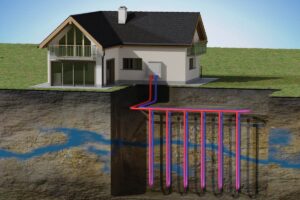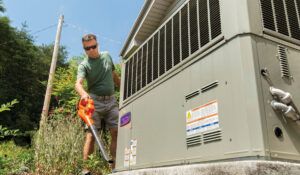 As I mentioned last month, several things have happened to convince me that I should dedicate several articles to the very basics of energy efficiency. I have pondered this a lot and even wake up during the night thinking about it.
As I mentioned last month, several things have happened to convince me that I should dedicate several articles to the very basics of energy efficiency. I have pondered this a lot and even wake up during the night thinking about it.
I have discussed some of these thoughts with young students, middle-aged adults and some senior adults. They all agree that we need to know more of the basics about energy efficiency. Just last week, while conducting a meeting at a high school auditorium, I asked the question, “As we know it, all energy comes from where?”
There were 75 people in attendance including students and adults. No one answered the question, so I asked it again. Finally an adult answered, “From the sun.” That is the correct answer, and I, like many of you, had learned that in a science class many years ago. I’m sure that some others thought, after they heard the correct answer, “Oh yes, I knew that too.” But I am convinced that many in the room did not know that all energy comes from the sun. Wow, that’s a really big statement, so let’s look at some of the ways that the sun relates to the energy usage of our home.
1. If there had been no sun a long time ago, there would be no coal for the generation of electricity today.
2. If there had been no sun in the past, there would be no natural gas for house heating or electricity generation today. This also applies to propane gas.
3. If there were no sun, there would be no wood to help heat a house.
4. If there were no sun, there would be no wind to turn a turbine to generate electricity.
5. If there were no sun, there would be no rain and, therefore, no water in the lake to generate electricity.
6. If there were no sun, biomass would not even be considered as a possible future source for generating electricity.
7. And last, and most obvious, if there were no sun, you could not have any solar generation.
Isn’t it interesting to note that just about all of this has to do with the generation of electricity? Why is this the case? It is because just about everything in the house, except the dog and the furniture, needs electricity. Even a gas furnace and a gas clothes dryer need electric fan motors to operate properly. And a gas cooktop in the kitchen probably uses electricity for the clock and timers. For the past several years, electronic items have been the number one choice for Christmas gifts, and, yes, all electronics use electricity.
Well, I think that we would all agree that the need for electricity is not going away and that the demand is most likely to increase. With that said, it is imperative that we use electricity wisely.
That is exactly why this column is placed in this publication. Your electric co-op’s mission is to provide you with adequate and affordable electricity. Folks, I am not an employee of any electric co-op, but I know for a fact that they all work hard to fulfill their mission to you, the member, in spite of difficult governmental regulations and rising costs.
Although you and I have no control over utility rates, we do have control over usage. Simply put, that is called conservation and energy efficiency.
Think with me for a minute and imagine a tube of caulk. Energy was required to manufacture, package and ship the tube. Let’s say that it took 50 cents to put the tube on the shelf. Now, let’s suppose that 10 cents of the 50 cents was for electricity for the manufacturing. If you pay $2 for the tube and caulk places in your house, you will then save 10 cents per month on your electric bill. The 10 cents of electricity that was used in producing the one tube of caulk would likely save hundreds of dollars of electricity over the life of the house.
What if each household in America would use one tube? Wow, that would be huge. What if each household used 10 tubes? That total savings in the generation of electricity would be unbelievable. It is not important that my dollar figures be exactly correct. But it is important that we use energy wisely today to help have adequate affordable energy in the future. We can all do our part, and we can make a difference. Of course, without the sun, it wouldn’t even matter.
See you next month when the sun will make the dogwood trees really beautiful.
Doug Rye can be heard on several different Illinois radio stations. You can go to Doug Rye’s Web site at www.dougrye.com, e-mail him at info@philliprye.com, or call 501-653-7931.








